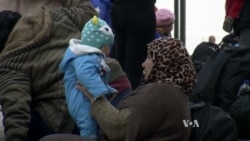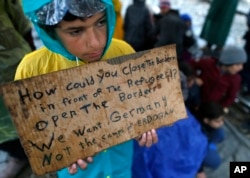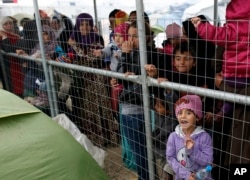With tens of thousands of migrants stuck on its territory and borders to the north closed off, financially-challenged Greece is bearing the burden of Europe’s refugee crisis.
A small army of activists, aid workers, doctors and ordinary citizens has filled the holes in the state’s ability to cope with the crisis.
Volunteers have come from around the world — but many Greeks have also responded with solidarity.
“The country least prepared, the population least prepared to shoulder this crisis has shown an enormous preparedness to shoulder it actually. But in reality, it is not paradoxical because people understand hardship,” said professor Serafeim Seferiadis of Panteion University in Athens.
Just nine months ago, Greece was on the brink of bankruptcy. Long lines formed at cash machines ahead of a feared exit from the euro currency.
Eventually, Prime Minister Alexis Tsipras accepted the terms of a new EU bailout in return for further austerity, defying the result of a referendum.
“The minute that happened, Tsipras lost all leverage and all his bargaining chips. So at the moment, all he is trying to do is plead for some help in the hope that this would ring a bell with the European Union institutions,” Seferiadis said.
Funds withheld
Those EU institutions are keeping Athens on a tight leash. Europe is refusing to hand over the latest tranche of bailout money or discuss debt relief until it sees further tax and pension reforms.
The latest talks broke down Sunday without agreement and will resume next week. But there are signs of sympathy for Athens.
“We need some understanding for Greece's situation, which is simultaneously dealing with pensions, the level of taxes and the necessary means to accommodate refugees,” French Finance Minister Michele Sapin said Monday.
The EU has earmarked $782 million to cope with the migrant influx, much of it destined for Greece.
The islands are preparing to host thousands of EU immigration personnel to help implement the new migrant deal with Ankara, which would see all new arrivals sent back to Turkey.
But major aid organizations, including the U.N.’s refugee agency, have withdrawn staff from island facilities, saying they refuse to be complicit in what they called a "mass expulsion operation."







